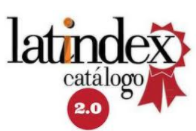Protection of marine biodiversity in areas beyond national jurisdiction in the current international regime of the Law of the Sea
Mile 201 and the genetic resources of the Seabed and Ocean Floor
DOI:
https://doi.org/10.35305/cc.vi136.146Keywords:
international regime of the Law of the Sea, marine biodiversity, areas beyond national jurisdictionAbstract
The 1982 United Nations Convention on the Law of the Sea (UNCLOS) established a new international regime for the oceans by determining the rights and obligations of States in the various areas of the sea, the legal nature and limits of these spaces, as well as the rules applicable to navigation, exploration and exploitation of natural resources, installations, preservation of the marine environment, scientific research and technology transfer. However, despite its depth, there are gaps with respect to the conservation and protection of the oceans beyond the areas under national jurisdiction. The purpose of this paper is to reflect on the protection of marine biodiversity in these areas within the framework of the regime born with the UNCLOS and its implementation agreements, considering the current negotiation process of a new binding legal instrument for this purpose. Focusing this paper on fishing and protection of species from the 201st mile, and on legal nature of genetic resources, we have
resorted to the analysis of legal instruments that are part of this regime, as well as to the writings of specialized researchers in the areas involved in order to provide a conceptual framework for this article.
Downloads
Published
How to Cite
Issue
Section
License
Copyright (c) 2022 Autor

This work is licensed under a Creative Commons Attribution-NonCommercial-ShareAlike 4.0 International License.
Aquellos autores/as que tengan publicaciones con esta revista, aceptan los términos siguientes:
- Los autores/as conservarán sus derechos de autor y garantizarán a la revista el derecho de primera publicación de su obra, el cuál estará simultáneamente sujeto a la Licencia Creative Commons Reconocimiento-NoComercial-CompartirIgual 4.0.
- Los autores/as podrán adoptar otros acuerdos de licencia no exclusiva de distribución de la versión de la obra publicada (p. ej.: depositarla en un archivo telemático institucional o publicarla en un volumen monográfico) siempre que se indique la publicación inicial en esta revista.
- Se permite y recomienda a los autores/as difundir su obra a través de Internet (p. ej.: en archivos telemáticos institucionales o en su página web) antes y durante el proceso de envío, lo cual puede producir intercambios interesantes y aumentar las citas de la obra publicada.
















